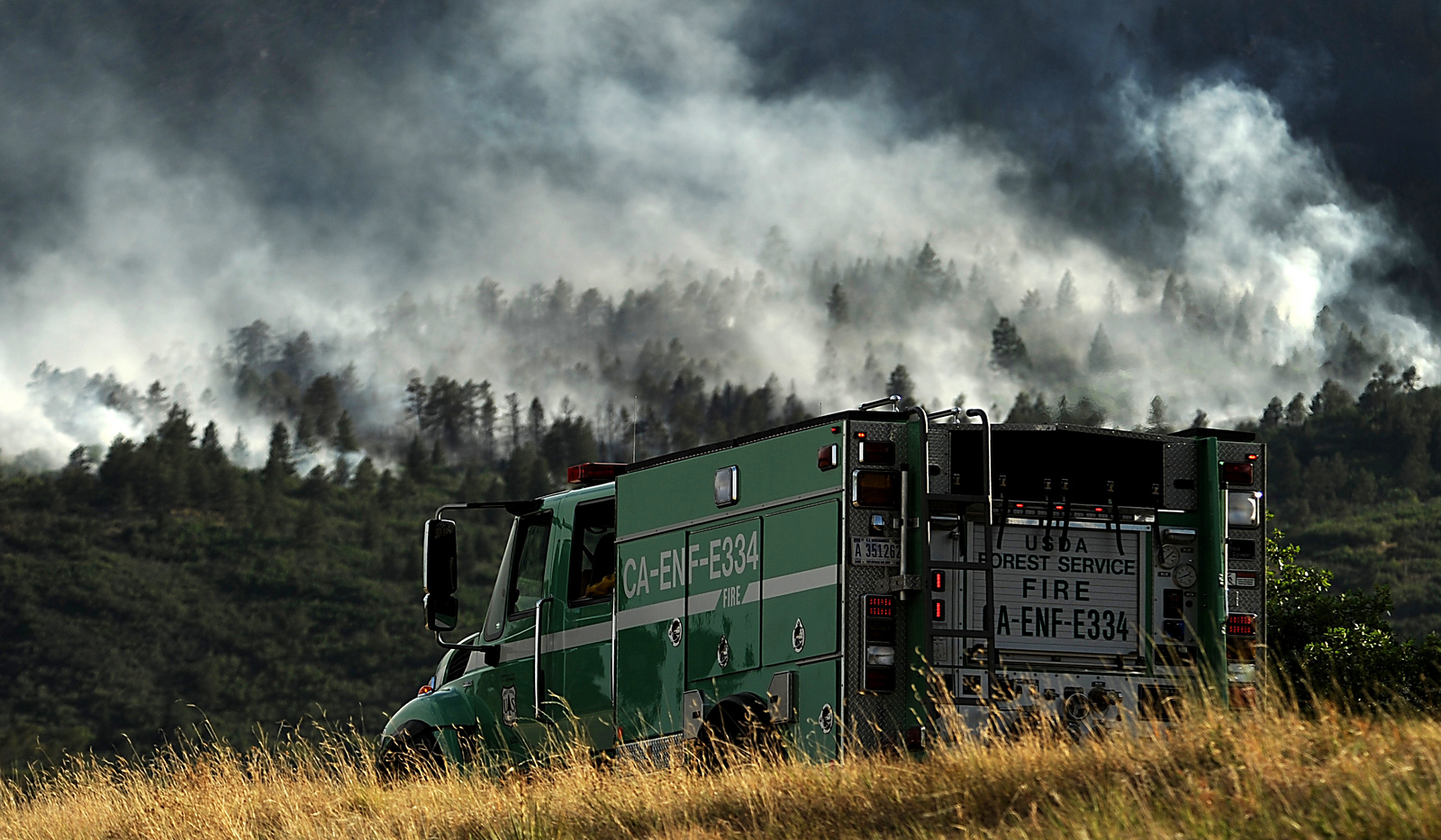

A new report predicts that fire suppression will take up two-thirds of the budget within the decade.
- May 12: Wildfire Fighters On Dangers, Climate Change
- Aug. 3: Homeowners, Firefighters Differ On Wildfire Risk
The agency names climate change as the logical cause of the budgetary shift. Higher average temperatures have added 78 days to the fire season when compared to the 1970s. Those fires are also setting records for size. As the agency tasked with protecting public lands, the Forest Service has had to dedicate more resources to combat a growing threat.
"These factors are causing the cost of fighting fires to rise every year, and there is no end in sight," said Forest Service Chief Tom Tidwell in a statement.
The problem for the agency is that resources dedicated to firefighting have to be taken from other land management efforts through so-called "fire transfers." That means fire suppression often comes at the expense of efforts that help prevent forest fires, like watershed management.
The Forest Service wants Congress to help address the issue with the Wildfire Disaster Funding Act, which has already been introduced in the House and Senate. In essence, the bill would end fire transfers by letting the agency treat fires as natural disasters, not routine hazards to public lands.
Colorado's wildfire fighters also see climate change as a major contributor to the increasing intensity and destructiveness of wildfires. That's the message in "Unacceptable Risk," a short documentary that says the state's fire season has lengthened to seven months and departments fear losing lives on the front lines.
Veteran firefighter Don Whittemore and his daughter Madison, who will become a firefighter this fall, spoke with CPR's Andrea Dukakis about the issue in May.
"What you have to look at is the big picture. Over the last 30 years, the number and size of fires continues to grow almost at an exponential rate. At some point you have to recognize that climate change is occurring," Don Whittemore says.








